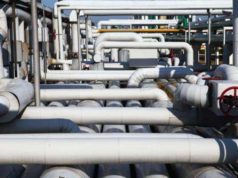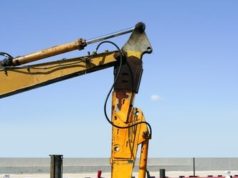
On November 20, 2012, Louisiana Generating (owned by NRG Energy Inc) agreed to a settlement that will eliminate 27,300 tons of harmful emissions per year from the Big Cajun II coal-fired power plant located in New Roads, Louisiana. The settlement requires Louisiana Generating to pay a fine of $3.5 million, spend $10.5 million on mitigation projects, and spend roughly $250 million on reducing air pollution.
The reductions are possible with new pollution controls, conversion to natural gas, and emission caps from year to year at the Big Cajun II power plant. The Department of Justice and Environmental Protection Agency (EPA) report emissions on sulfur dioxide (SO₂) and nitrogen oxides (NOx) will be reduced by 20,000 tons and 3,300 tons. Most of the $250 million will go to capital costs to meet requirements in the consent decree by the end of 2015.
Regulations under the Clean Air Act—as well as federal and state regulations—require owners of power plants to obtain permits and install emission control technology after modifications occur at the plant. According to the Justice Department, Units 1 and 2 at the Big Cajun II plant were operating without the required permits or air pollution controls after serious modifications were made to the boiler.
The settlement is the largest Clean Air Act settlement in Louisiana History. It is the 24th time the United States has exercised the Power Plant Enforcement Initiative.
Ignacia S. Moreno, the Assistant Attorney General with the Justice Department’s Environment and Natural Resources Division, stated: “The Big Cajun II Power Plant is the largest source of illegal air pollution in Louisiana. This settlement will secure substantial reductions in harmful emissions from the plant which will have a beneficial impact on air quality for residents of Louisiana and downwind states, including low-income communities who have been historically overburdened with pollution.”
The $10.5 million for environmental mitigation projects will go to the following:
· the installation of solar photovoltaic panels at schools and buildings owned by government or non-profits
· the restoration of watersheds, forest, and land
· funding for at least one charging station in South Louisiana that receives power from zero-emission, renewable energy
· the reduction of nitrogen and phosphorus loading in the False River
· energy efficiency projects
· $1.5 million to the state of Louisiana for green projects
The settlement with Louisiana Generating is justifiable because the company clearly neglected federal and state requirements while releasing huge amounts of pollution into the air. Cynthia Giles, an assistant administrator with the EPA’s Office on Enforcement and Compliance Assurance, states: “Pollution from these sources can cause severe respiratory and cardiovascular impacts, and EPA is committed to making sure that they all comply with the law.”
Source: Department of Justice


































